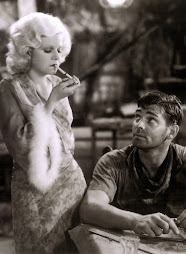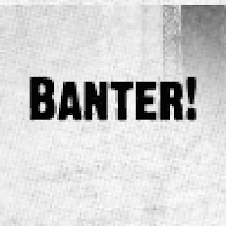
From 1955, directed by Robert Aldrich, starring Ida Lupino, Jack Palance, Rod Steiger, Wendell Cory, Jean Hagen, and Shelley Winters. Whew!
The movie's based on the Broadway play by Clifford Odets, and the lead part of Charlie Castle was supposed to be played by John Garfield, who originated the part on the stage, but Garfield died before the play could be adapted to the screen.
Ida Lupino (who plays Charlie Castle's wife in the film) was pretty much miserable during filming because she was reminded too much of her good friend "Johnny" Garfield. But Jack Palance does a fine job in the role Garfield originated, and Ida's performance is filled with heartbreak and passion, so I would say they both did Garfield proud by their work in this film.
The story is about a big-time actor named Charlie Castle (formerly, Cass) who sold out his New York stage roots to find fame and fortune in Hollywood. Now the studio he's been working for wants to sign him to a fourteen year contract (basically, they're gonna own him till he's fifty) and he's got to decide whether he wants an easy living making schlocky pictures in Hollywood or a return to the legitimate theater and the life of a real artist back east.
Lupino is his estranged wife, and she wants her husband to reject the offer and be an artist again. Steiger is the maniacal studio boss who tries to bully Charlie into the contract; Cory is Steiger's sleazy right-hand man; Hagen is the wife of Charlie's friend, but she wouldn't mind a roll in those fabulous Hollywood silk sheets with old Charlie himself; and Winters is the slushy floozy who knows Charlie's secret.
Funny how a film can hit you hard when you're least expecting it.
I always thought I was one of those writers who wasn't so pretentious as to stick my nose up and look down on the "entertainment for the masses" (as the artistes so snootily call it) (and isn't it just like those snobby types to denigrate something that the average person likes! humph!). You know, those movies that come out of Hollywood (usually in the summer months) that are mostly easy, light bits of entertainment; fun and flashy but not particularly deep. I always thought I was on the side of the common man who prefers his superhero movies to those Oscar-bait snorefests the highbrows like to pump out around Christmastime. I always thought I wasn't the type to get preachy about "selling out," since selling out often means making something that a lot of people like, that brings ordinary folks a little bit of happiness and escapism and what's wrong with that? And "being true to your art" often means making some pretentious crap that only image-conscious hipster-types like. Guess what hipsters? I like comic books! I like Tolkien! I'm against the feces-flung desecration that passes for "art" in the Modern Art museums of the world!
But I'll tell you what, when I was in Hollywood, I did feel an icky sense that it was all about the money, and about the world of power and sex and fabulously rich possessions, and I feared what would happen to me if I stayed out there too long. Not that a person can't work in Hollywood and keep his integrity and morals -- there are brave souls, good, holy souls out there right now doing it for real, some of them are my friends and they can make it, they have the strength -- but I'm weak like Charlie Castle; I'm too easily tempted.
And I too longed to "get back east where they have four seasons" (a line from the film that hit me square in the gut).
So once again a movie confirms undeniable truth #17: New York is better than Los Angeles, always and forever. New York City is where the artists are. L.A. is for wealth, power, and soulless parties. The California sunshine just masks the empty ghostly figures by giving them a nice tan.
Or, at least, that's how this movie made me feel and maybe I've fallen prey to its illusion. Filmmaking, afterall, is about a certain perspective, i.e.: who's putting the camera down and where's he pointing it (and where isn't he pointing)?
This film is a New York playwright's indictment of Hollywood. Take that how you will. But it sure took me for an emotional ride and sorta made me glad I packed up and headed back east.













_01.jpg)






